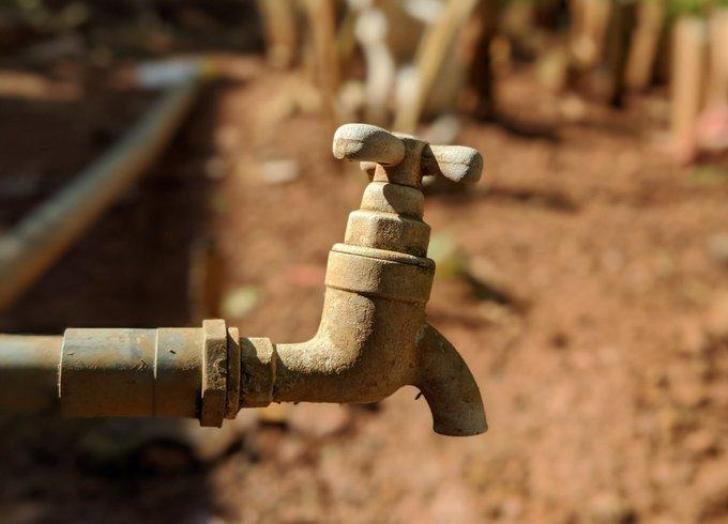News / National
Harare, Bulawayo face another deadly cholera outbreak
06 Sep 2024 at 06:34hrs |
0 Views

Experts are urging the government to declare the water crises in Harare and Bulawayo a state of national disaster to facilitate urgent external intervention and prevent a potential health crisis following a recent cholera outbreak. Although authorities declared the end of the cholera outbreak in July, experts warn that the underlying conditions causing the waterborne disease remain unresolved.
The cholera outbreak, which began in Chegutu in February 2023, resulted in 34,549 suspected cases and over 700 deaths. The situation in Bulawayo and Harare has now reached Parliament, where Zanu-PF Proportional Representation lawmaker Rita Ndlovu has called for an urgent overhaul of the water reticulation systems in these cities and others.
Ndlovu emphasized that declaring a state of disaster would attract necessary private sector and international assistance. She also called for prioritizing foreign currency allocation and budgetary support for water-related activities, such as bulk water provision, and the rehabilitation of infrastructure, including the Gwayi-Shangani Dam.
Bulawayo's water supply issues are exacerbated by decommissioned and dwindling water levels in supply dams. Harare faces shortages of foreign currency for purchasing water treatment chemicals, resulting in residents going weeks without running water. Ndlovu urged the government to address these challenges by funding the purchase of water treatment chemicals and infrastructure rehabilitation.
Harare Residents Trust coordinator Precious Shumba and Combined Harare Residents Association chairperson Reuben Akili stressed the need for improved water, sanitation, and hygiene programs. They highlighted the urgency of upgrading underground sewage and water pipes to ensure treated water reaches households effectively.
Medical and Dental Private Practitioners Association of Zimbabwe president Johannes Marisa and Community Working Group on Health director Itai Rusike expressed concerns about the resurgence of diseases like cholera, typhoid, and diarrhea due to the water crisis. They also noted the risks faced by women who may be forced into dangerous situations to access water.
The Gwayi-Shangani Dam project, which aims to pipe water from the Zambezi River to Bulawayo, is seen as a long-term solution but has faced delays. Originally proposed in 1912, it has yet to be completed despite promises to finish construction by December 2023.
Justice Minister Ziyambi Ziyambi argued against declaring the water crisis an emergency, citing mismanagement by local authorities and inadequate performance in Harare and Bulawayo. He noted that despite the challenges, local authorities have struggled with their responsibilities over the past two decades.
The cholera outbreak, which began in Chegutu in February 2023, resulted in 34,549 suspected cases and over 700 deaths. The situation in Bulawayo and Harare has now reached Parliament, where Zanu-PF Proportional Representation lawmaker Rita Ndlovu has called for an urgent overhaul of the water reticulation systems in these cities and others.
Ndlovu emphasized that declaring a state of disaster would attract necessary private sector and international assistance. She also called for prioritizing foreign currency allocation and budgetary support for water-related activities, such as bulk water provision, and the rehabilitation of infrastructure, including the Gwayi-Shangani Dam.
Bulawayo's water supply issues are exacerbated by decommissioned and dwindling water levels in supply dams. Harare faces shortages of foreign currency for purchasing water treatment chemicals, resulting in residents going weeks without running water. Ndlovu urged the government to address these challenges by funding the purchase of water treatment chemicals and infrastructure rehabilitation.
Medical and Dental Private Practitioners Association of Zimbabwe president Johannes Marisa and Community Working Group on Health director Itai Rusike expressed concerns about the resurgence of diseases like cholera, typhoid, and diarrhea due to the water crisis. They also noted the risks faced by women who may be forced into dangerous situations to access water.
The Gwayi-Shangani Dam project, which aims to pipe water from the Zambezi River to Bulawayo, is seen as a long-term solution but has faced delays. Originally proposed in 1912, it has yet to be completed despite promises to finish construction by December 2023.
Justice Minister Ziyambi Ziyambi argued against declaring the water crisis an emergency, citing mismanagement by local authorities and inadequate performance in Harare and Bulawayo. He noted that despite the challenges, local authorities have struggled with their responsibilities over the past two decades.
Source - newsday
Join the discussion
Loading comments…
































